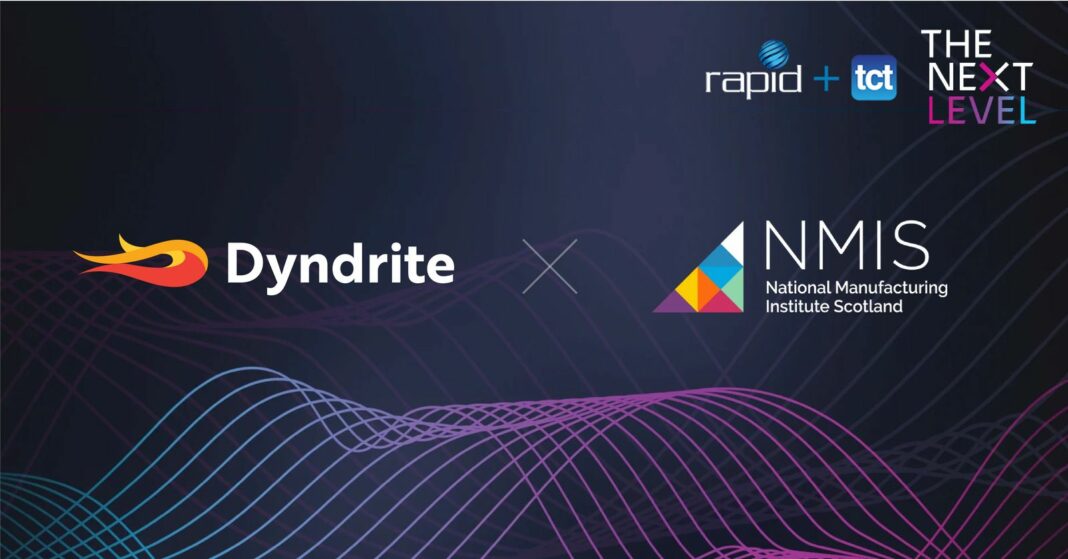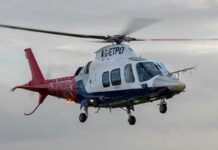Dyndrite™, providers of the GPU-accelerated computation engine, is now a member of the National Manufacturing Institute Scotland (NMIS). The company will work with researchers from the NMIS Digital Factory on the development of Laser Powder Bed Fusion (LPBF) process materials knowledge across multiple industries.
As a reminder, Dyndrite’s GPU-accelerated computation engine is used to create digital manufacturing hardware and software. Using the capabilities of its technology, the company will work on a variety of R&D projects, from assessing fatigue strength and corrosion resistance for biomedical applications, to finding the best materials properties for parts used within the energy sector.
“We are delighted to join forces with NMIS and members to develop AM metals materials and explore production automation of LPBF using repeatable build recipes,” said Stephen Anderson, Head of Strategic Relationships Dyndrite. “By removing variation in the print process we showcase how additive manufacturing scales to allow users to make more parts with greater consistency at a lower price. This is the key to unlocking new markets in 3D metal printing. This effort will drive metal AM into a mainstream production process and enable simpler traceability from powder to part.”
The announcement follows the recent reveal of the company’s first end-user AM application, Dyndrite Materials and Process Development for LPBF. This GPU-based 3D application, designed for engineers and scientists, simplifies and brings automation to the development of metal alloys and parts for laser-based 3D metal printing.
It takes maximum advantage of Dyndrite’s Accelerated Computation Engine (ACE), including the ability to query 3D geometry in order to detect and optimize for difficult to print features such as domes, cantilevers, and thin walls. Dyndrite’s LPBF application increases print throughput, speeds development, and lowers part costs. Users can also create and share build recipes (Python) that provide all the information required to recreate a build and drive the manufacturing process. Dyndrite’s LPBF application outputs to 3D metal printers from Aconity3D, EOS, Renishaw, SLM and others, a press release states.
“We’re excited to welcome Dyndrite as our newest NMIS member, where they will be working with our Additive team,” said Stephen Fitzpatrick, Director NMIS Digital Factory. “Our deployment will immediately help develop and grow our AM materials capabilities. Over the next year, we aim to collaborate on research projects that showcase novel additive use cases within process qualification and calibration and automated production lines. We look forward to getting started.”
Remember, you can post free of charge job opportunities in the AM Industry on 3D ADEPT Media or look for a job via our job board. Make sure to follow us on our social networks and subscribe to our weekly newsletter : Facebook, Twitter, LinkedIn & Instagram ! If you want to be featured in the next issue of our digital magazine or if you hear a story that needs to be heard, make sure to send it to contact@3dadept.com.






